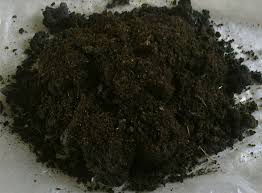
Dec . 19, 2024 00:51 Back to list
potassium sulfate for plants
The Role of Potassium Sulfate for Plants
Potassium sulfate, often abbreviated as SOP, is an essential compound in the world of plant nutrition. Composed of potassium (K) and sulfur (S), it provides critical nutrients that contribute to the overall health, growth, and productivity of plants. As a soluble fertilizer, potassium sulfate has garnered significant attention among farmers and gardeners alike due to its effectiveness and versatility. In this article, we will explore the importance of potassium sulfate for plants, its benefits, and how to effectively use it in horticulture.
Understanding Potassium and Sulfur in Plant Growth
Before delving into potassium sulfate, it is vital to understand the roles of potassium and sulfur separately. Potassium is one of the three primary macronutrients essential for plant growth, along with nitrogen and phosphorus. It plays a crucial role in various physiological processes including
- Water Regulation Potassium helps regulate the opening and closing of stomata, which controls water loss through transpiration. - Photosynthesis This nutrient is vital for the synthesis of chlorophyll, thereby enhancing a plant's ability to use sunlight for energy. - Enzyme Activation Potassium activates enzymes that are key in many metabolic processes, including the synthesis of proteins and carbohydrates. - Stress Resistance Sufficient potassium levels in plants can improve their ability to withstand environmental stresses, such as drought and disease.
Sulfur, on the other hand, is essential for the synthesis of amino acids, the building blocks of proteins. It is also a crucial component of vitamins and certain enzymes. Without adequate sulfur, plants may experience stunted growth, yellowing of leaves, and overall poor health.
Benefits of Potassium Sulfate
1. Balanced Nutrient Supply Potassium sulfate not only supplies potassium but also sulfur, making it a balanced source of both nutrients. This is particularly beneficial for crops that have high demands for these elements.
2. Improved Crop Quality The application of potassium sulfate has been shown to enhance the quality of various crops. It can lead to better fruit size, color, and taste, producing higher marketable yields.
potassium sulfate for plants

3. Soil Health Since potassium sulfate is a salt-neutral compound, it does not adversely affect the soil's pH levels, making it an ideal choice for maintaining healthy soil conditions. This characteristic is particularly advantageous in areas with high salinity or where other potassium fertilizers may lead to soil issues.
4. Solubility and Rapid Uptake The high solubility of potassium sulfate allows for quick absorption by plant roots. This rapid uptake ensures that plants receive the necessary nutrients at the right time, promoting vigorous growth during critical development stages.
5. Compatibility with Other Nutrients Potassium sulfate can be easily blended with other fertilizers, providing a well-rounded nutrient profile tailored to specific plant needs. This flexibility makes it a cost-effective option for farmers who need a multifaceted approach to fertilization.
Application Methods
When using potassium sulfate, it is essential to consider the application method to maximize its efficacy
- Soil Application SOP can be broadcast over the surface of the soil before planting or during the growing season. Soil incorporation is recommended to enhance nutrient uptake. - Fertigation This method involves dissolving potassium sulfate in irrigation water, allowing for precise nutrient delivery. Fertigation is especially beneficial in high-value crops and controlled environments, such as greenhouses.
- Foliar Sprays Applying potassium sulfate as a foliar spray can provide a quick source of nutrients during critical growth stages. This method is effective in addressing deficiencies and improving crop performance.
Conclusion
Potassium sulfate is an invaluable tool in modern agriculture and horticulture. Its dual nutrient composition of potassium and sulfur addresses both macro and micronutrient needs, ultimately leading to healthier, more productive plants. By understanding the role of potassium sulfate and implementing best application practices, growers can harness the full potential of their crops, ensuring robust growth, enhanced quality, and sustainable farming practices. With the right balance of nutrients, the journey to thriving plants and fruitful harvests is well within reach.
-
Premium Organic Manure Compost for Eco Gardens
NewsAug.01,2025
-
Organic 10-10-10 Fertilizer | Balanced Plant Nutrients
NewsJul.31,2025
-
Premium Amino Acid Fertilizer | Rapid Plant Growth Booster
NewsJul.31,2025
-
10 10 10 Fertilizer Organic—Balanced NPK for All Plants
NewsJul.30,2025
-
Premium 10 10 10 Fertilizer Organic for Balanced Plant Growth
NewsJul.29,2025
-
Premium 10 10 10 Fertilizer Organic for Balanced Plant Growth
NewsJul.29,2025
